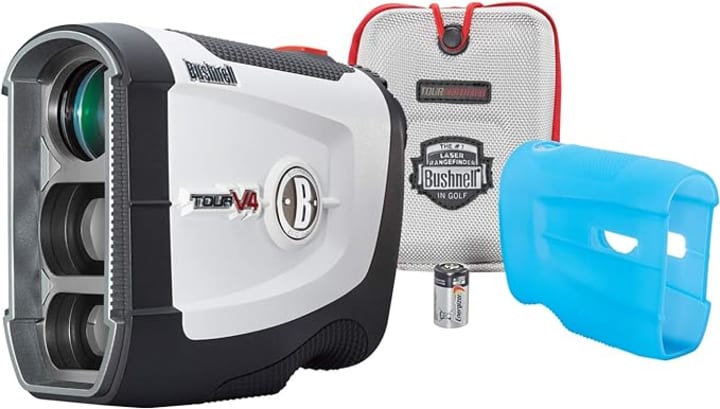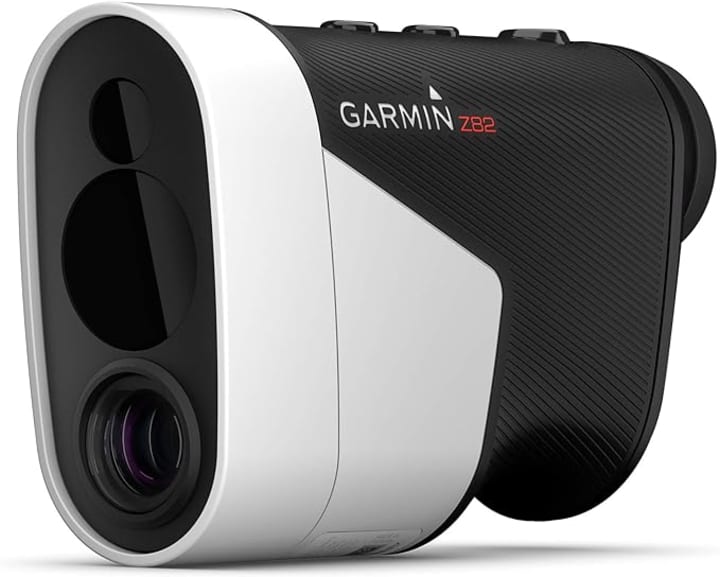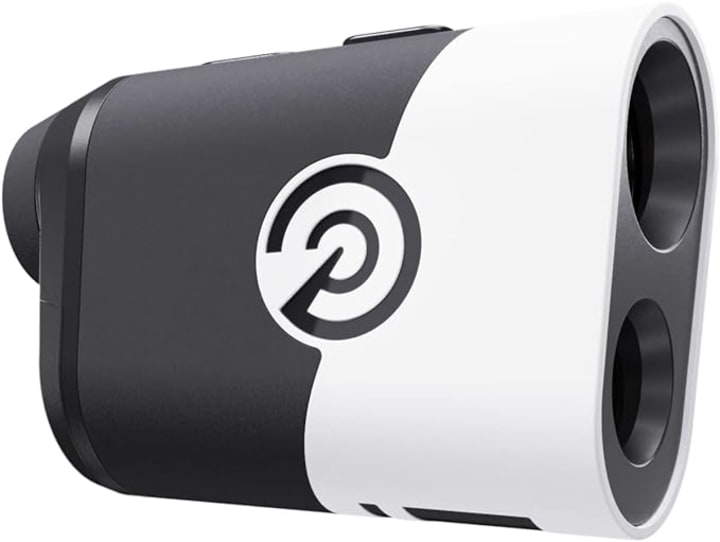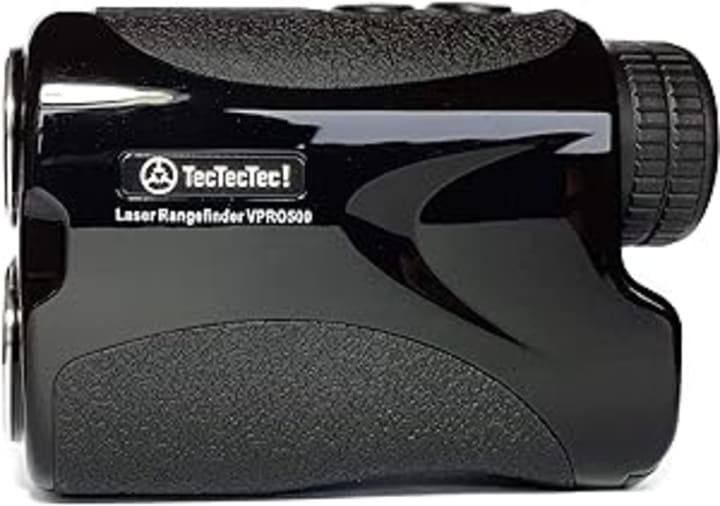Golf Rangefinders 101: A Beginner's Guide to Choosing the Right Device
Best Rangefinders For You!

Are you tired of guessing distances on the golf course and watching your shots fall short? You're not alone! Many beginners struggle with this common problem, but there's a simple solution that can transform your game: a golf rangefinder. Now, I know what you might be thinking – "Aren't rangefinders complicated and expensive?" Don't worry, we’ve got you covered. In this beginner’s guide, we'll unravel the mysteries of golf rangefinders, debunk common myths, and walk you through everything you need to know to choose the perfect device for your game. By the end of this post, you’ll feel confident and excited about making a smart investment that will elevate your golfing experience. So, let’s dive in and get you on the path to more accurate, enjoyable rounds of golf!
What Is a Golf Rangefinder and Why Do You Need One?
A golf rangefinder is a device designed to measure the distance between you and a specific point on the golf course, such as the flagstick, hazards, or other landmarks. By providing accurate distance measurements, a rangefinder helps you make informed decisions about which club to use and how to approach your shots.
But why do you need one? The answer is simple: precision. Golf is a game of inches, and even small miscalculations can lead to big mistakes. A rangefinder removes the guesswork, allowing you to focus on your swing and strategy. Whether you're a beginner looking to improve your accuracy or an experienced player aiming to refine your game, a rangefinder is an invaluable tool.
Types of Golf Rangefinders: Laser vs. GPS
When it comes to choosing a golf rangefinder, there are two main types to consider: laser rangefinders and GPS rangefinders. Each type has its own advantages and disadvantages, so it's important to understand the differences to determine which one is best for you.
Laser Rangefinders
Laser rangefinders use a laser beam to measure the distance between you and your target. You simply point the device at the target, press a button, and the rangefinder calculates the distance based on the time it takes for the laser to bounce back. Here are some key features and benefits of laser rangefinders:
- **Accuracy:** Laser rangefinders are known for their precise measurements, often accurate to within a yard.
- **Versatility:** They can measure distances to various targets, not just pre-mapped points.
- **Ease of Use:** Most laser rangefinders are user-friendly, with simple point-and-shoot functionality.
However, laser rangefinders also have some drawbacks:
Line of Sight: You need a clear line of sight to your target for the laser to work effectively.
Steadiness Required:** Holding the device steady can be challenging, especially for longer distances.
GPS Rangefinders
GPS rangefinders use satellite signals to determine your location on the course and provide distances to various points, such as the front, middle, and back of the green. Key features and benefits of GPS rangefinders include:
Convenience: GPS rangefinders often come pre-loaded with thousands of courses, so you don't need to manually input data.
Ease of Use: Simply turn on the device, select your course, and get instant distance readings.
Additional Features: Many GPS rangefinders offer extra features like digital scorecards, shot tracking, and hazard information.
However, GPS rangefinders also have some limitations:
Accuracy: While generally accurate, they may not be as precise as laser rangefinders.
Battery Life: GPS devices rely on battery power, which can drain quickly during a round.
Subscription Fees: Some models require ongoing subscription fees for course updates.
Key Features to Look for in a Golf Rangefinder
When choosing a golf rangefinder, it's important to consider various features to ensure you select the best device for your needs. Here are some key features to look for:
Accuracy
Accuracy is paramount in a rangefinder. Look for devices that offer precise distance measurements, ideally within a yard. Reading reviews and comparing specifications can help you gauge the accuracy of different models.
Range
Consider the maximum range of the device. While most rangefinders offer sufficient range for standard golf courses, some high-end models provide extended ranges that can be useful on larger courses or for long hitters.
Magnification
Magnification allows you to zoom in on your target for more precise measurements. Higher magnification can be especially beneficial for spotting distant targets, but it may also require a steadier hand.
Size and Weight
Portability is important on the golf course. Choose a rangefinder that is compact and lightweight, making it easy to carry and use without adding unnecessary bulk to your bag.
Display
A clear and easy-to-read display is essential. Look for rangefinders with high-contrast displays that are readable in various lighting conditions. Some models offer adjustable brightness settings for added convenience.
Battery Life
Long battery life is crucial, especially for GPS rangefinders. Check the battery specifications and consider how long the device can operate on a single charge. Replaceable batteries can also be a convenient feature.
Durability
Golf rangefinders need to withstand the rigors of the course, including occasional drops and exposure to the elements. Look for models with durable construction and water-resistant features.
Additional Features
Many modern rangefinders come with extra features that can enhance your golfing experience. These may include slope measurement (which adjusts distances based on elevation changes), vibration feedback when the target is locked, and connectivity with mobile apps for advanced data tracking.
How to Use a Golf Rangefinder: Tips for Beginners
Using a golf rangefinder effectively can take some practice, but these tips will help you get started:
For Laser Rangefinders
1. Hold Steady: Keep the rangefinder steady to ensure accurate readings. Bracing against a solid object or using both hands can help.
2. Target the Flagstick: Aim directly at the flagstick or another specific target. Some rangefinders offer pin-seeking technology to help lock onto the flag.
3. Press the Button: Press the measurement button and wait for the distance reading to appear on the display.
4. Practice: Spend time practicing with your rangefinder to become comfortable and efficient in using it during your rounds.
For GPS Rangefinders
1. Charge Fully: Ensure your GPS rangefinder is fully charged before heading to the course.
2. Select Your Course: Choose your course from the pre-loaded options or download it if necessary.
3. Consult the Display: Check the display for distances to the front, middle, and back of the green, as well as any hazards.
4. Utilize Additional Features: Take advantage of any extra features, such as shot tracking or scorekeeping, to enhance your experience.
Common Myths and Misconceptions About Golf Rangefinders
Despite their growing popularity, several myths and misconceptions about golf rangefinders persist. Let's debunk some of the most common ones:
"Rangefinders Are Only for Pros"
Many beginners assume that rangefinders are only for professional golfers or advanced players. In reality, rangefinders can benefit golfers of all skill levels by providing accurate distance measurements and helping with club selection.
"Rangefinders Are Too Expensive"
While it's true that some high-end rangefinders come with a hefty price tag, there are plenty of affordable options available. Many budget-friendly models offer excellent performance without breaking the bank.
"Rangefinders Are Complicated to Use"
Modern rangefinders are designed with user-friendliness in mind. Most devices feature simple point-and-shoot functionality or easy-to-navigate menus, making them accessible even to beginners.
"GPS Rangefinders Aren't Accurate"
While GPS rangefinders may not be as precise as laser rangefinders, they still offer reliable distance measurements. Advances in technology have significantly improved the accuracy of GPS devices in recent years.
Top Golf Rangefinders for Beginners: Our Recommendations
To help you get started, we've compiled a list of some of the best golf rangefinders for beginners. These models offer a balance of performance, ease of use, and affordability.

Type: Laser
Key Features: PinSeeker technology, JOLT vibration, 5x magnification, accuracy within one yard
Why We Recommend It: The Bushnell Tour V4 is known for its accuracy and ease of use, making it an excellent choice for beginners.

Type: GPS
Key Features: Over 41,000 preloaded courses, sunlight-readable display, digital scorecard, long battery life
Why We Recommend It: The Garmin Approach S10 offers a user-friendly interface and comprehensive course coverage at an affordable price.

Type: Laser
Key Features: Adaptive Slope technology, Pulse Vibration, 6x magnification, accuracy within one yard
Why We Recommend It: With its slope-adjustment feature and easy-to-read display, the Precision Pro NX7 provides great value for beginners.

Type: Laser
Key Features: Pinsensor technology, 6x magnification, continuous scan mode, accuracy within one yard
Why We Recommend It: The TecTecTec VPRO500 is a budget-friendly option that doesn’t compromise on performance or features.
Conclusion: Elevate Your Game with the Right Rangefinder
Choosing the right golf rangefinder can make a significant difference in your game, helping you make more accurate shots and ultimately lowering your scores. By understanding the different types of rangefinders, key features to look for, and how to use them effectively, you'll be well-equipped to make
About the Creator
Enjoyed the story? Support the Creator.
Subscribe for free to receive all their stories in your feed. You could also pledge your support or give them a one-off tip, letting them know you appreciate their work.





Comments (1)
Very good!